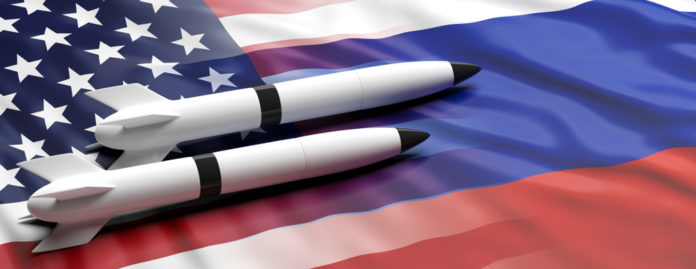Protest is dismissed for lack of jurisdiction where the award was made under DoD’s other transactions authority. Agreements issued under other transactions authority are not procurements that falls under COFC’s Tucker Act jurisdiction. Although the agreement in this case was related to a FAR-governed procurement, it was distinct from that procurement and thus not “connected” to a procurement as contemplated by the Tucker Act. Although the court dismissed for lack of jurisdiction, it determined that the interests of justice warranted transfer of the case to district court in California.
The Air Force issued a solicitation to develop space launch services, including rocket propulsion systems and launch vehicles. The launch development solicitation was issued under DoD’s other transactions authority—that is, as an agreement that is not subject to the laws and regulations governing procurements. The launch development solicitation was part of Phase 1 of a multi-step program to maintain the government’s space security needs. Under the launch development solicitation, the Air Force would fund awardees’ development of prototype launch systems. Under Phase 2 of the program, the Air Force would conduct an open competition and award contracts for actual launch services.
The Air Force awarded launch development agreements to three offerors: Blue Origin, LLC, United Launch Alliance, LLC, and Orbital Sciences Corporation. A disappointed offeror, Space Exploration Technologies Corp., filed a bid protest with COFC challenging the awards to the other three offerors. The other offerors intervened, and the government moved to dismiss SpaceX’s protest for lack of subject matter jurisdiction.
The government argued that COFC lacked jurisdiction over the protest because the launch development agreements were not procurement contracts as contemplated by the Tucker Act. The court agreed, analogizing to another case, Hymas v. United States, 810 F.3d 1312 (Fed. Cir. 2016), in which the Federal Circuit held that COFC lacked jurisdiction to hear a protest of a cooperative farming agreement because it was not a procurement contract. The court reasoned that the launch development agreements were clearly not procurement contracts because they had been issued under DoD’s other transactions authority.
Nevertheless, COFC may still hear protests under the Tucker Act for awards made “in connection with a procurement.” SpaceX argued the launch development agreements were made in connection with a procurement because they were related to the Phase 2 procurement, which would be an open competition conducted under the FAR, not other transactions authority. Indeed, the launch system prototypes produced under the development agreements would help the Air Force procure actual launch systems during Phase 2 of the procurement.
Even so, the court found that the development agreements were not “connected” to the Phase 2 procurement. Generally, decisions made under one solicitation do not affect decisions made under a different solicitation. The court determined that the development agreements and the Phase 2 acquisition had two different goals: the former was for the development of a system prototype while the latter was for an actual launch system. Significantly, the launch development procurement did not involve any goods or services purchased by the Air Force; the agency would not own the prototypes developed under the development agreements. But under the Phase 2 procurement the Air Force would purchase actual launch systems. The development agreements and the Phase 2 acquisition were distinct procurements.
SpaceX contended, however, that the procurements were still connected because the prototypes developed under the development agreements would increase the number of available launch systems and thus impact the Air Force’s acquisition of launch services under Phase 2. But SpaceX conceded that it would compete for an award of the Phase 2 contract even though it did not receive a development agreement. This indicated that award of the development agreement did not dictate the Phase 2 award. While SpaceX was rightly concerned that it may be disadvantaged by not receiving development funding, those concerns involved a potential challenge to Phase 2 of the procurement.
Having found that the development were not a procurements nor connected to a procurement as contemplated by the Tucker Act, the court granted the government’s motion to dismiss. Nonetheless, the court determined that in the interests of justice, the case should be transferred to the U.S. District Court for the Central District of California where SpaceX had its principal place of business.
SpaceX is represented by Craig A. Holman, Kara L. Daniels, David M. Hibey, Sonia Tabriz, and Nathaniel E. Castellano of Arnold & Porter Kaye Sholer LLP. The government is represented by Tanya B. Koenig, Douglas Edelschick, Douglas K. Mickle, Robert E. Kirschman, Jr., and Joseph H. Hunt of the U.S. Department of Justice as well as Erika Whelan Retta of the Air Force Legal Operations Agency and Gregory Yokas of the Office of the Staff Judge Advocate. Intervenor Blue Origin is represented by Scott E. Pickens, Michael A Hordell, Matthew J. Michaels, and Scott N. Godes of Barnes & Thornburg LLP. Intervenor United Launch Services is represented by Todd R. Steggerda, Benjamin L. Hatch, Edwin O. Childs, Jr., Nathan R. Pittman, Karlee S. Blank, and Blake R. Christopher of McGuireWoods, LLP. Intervenor Orbital Sciences Corporation is represented by Kevin Patrick Mullen, David A. Churchill, Sandeep N. Nandivada, R. Locke Bell, Lauren J. Horneffer, and Charles L. Capito III of Morrison & Foerster, LLP as well as Maureen F. Del Duca and Kenneth M. Reis of Northrop Grumman Corporation.




